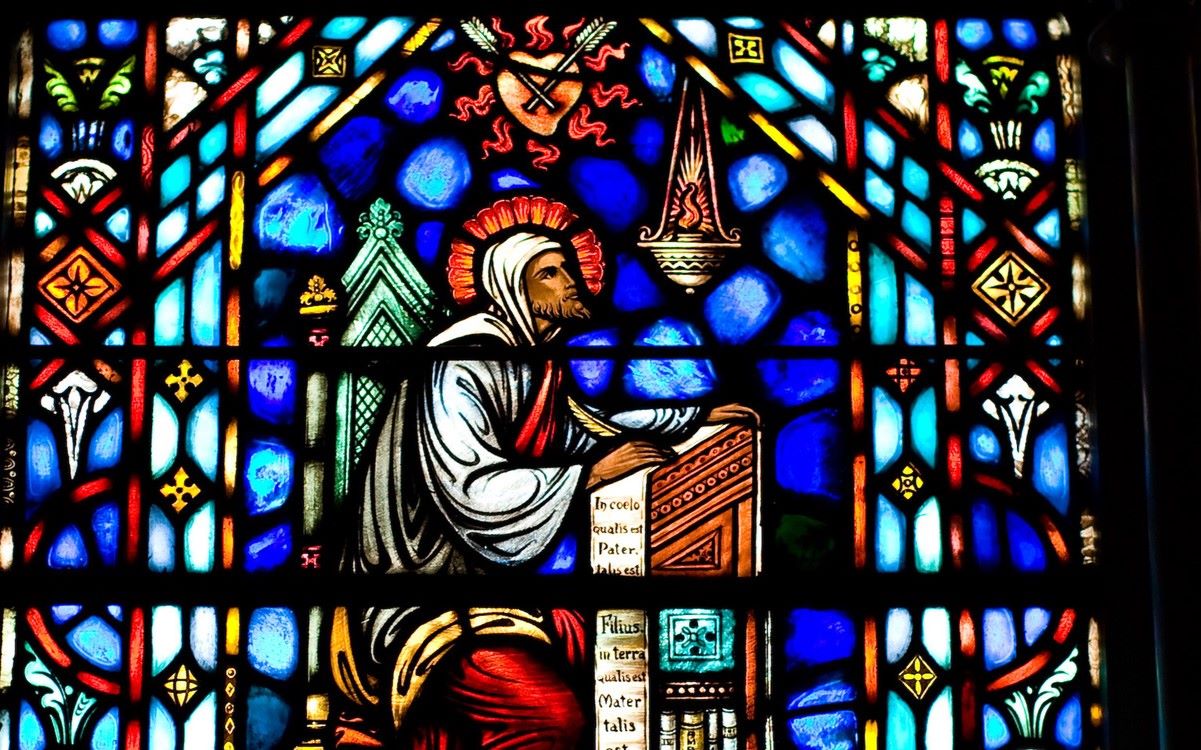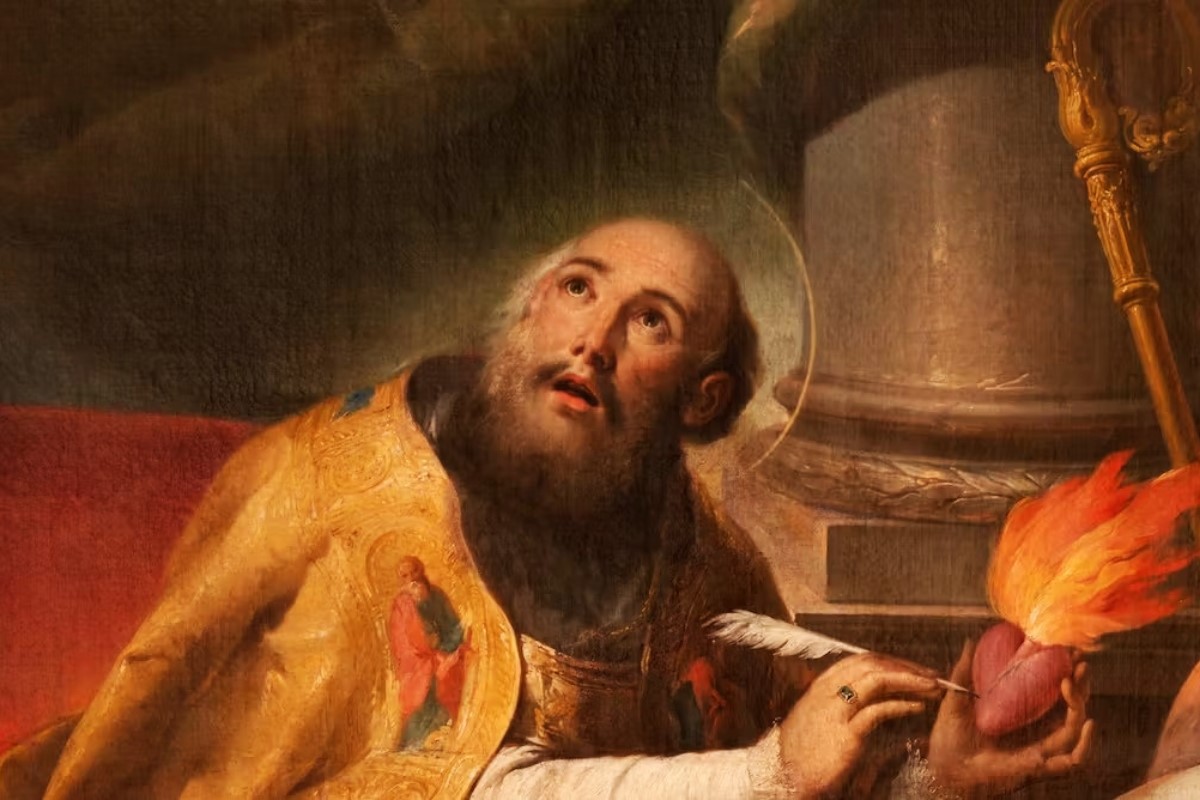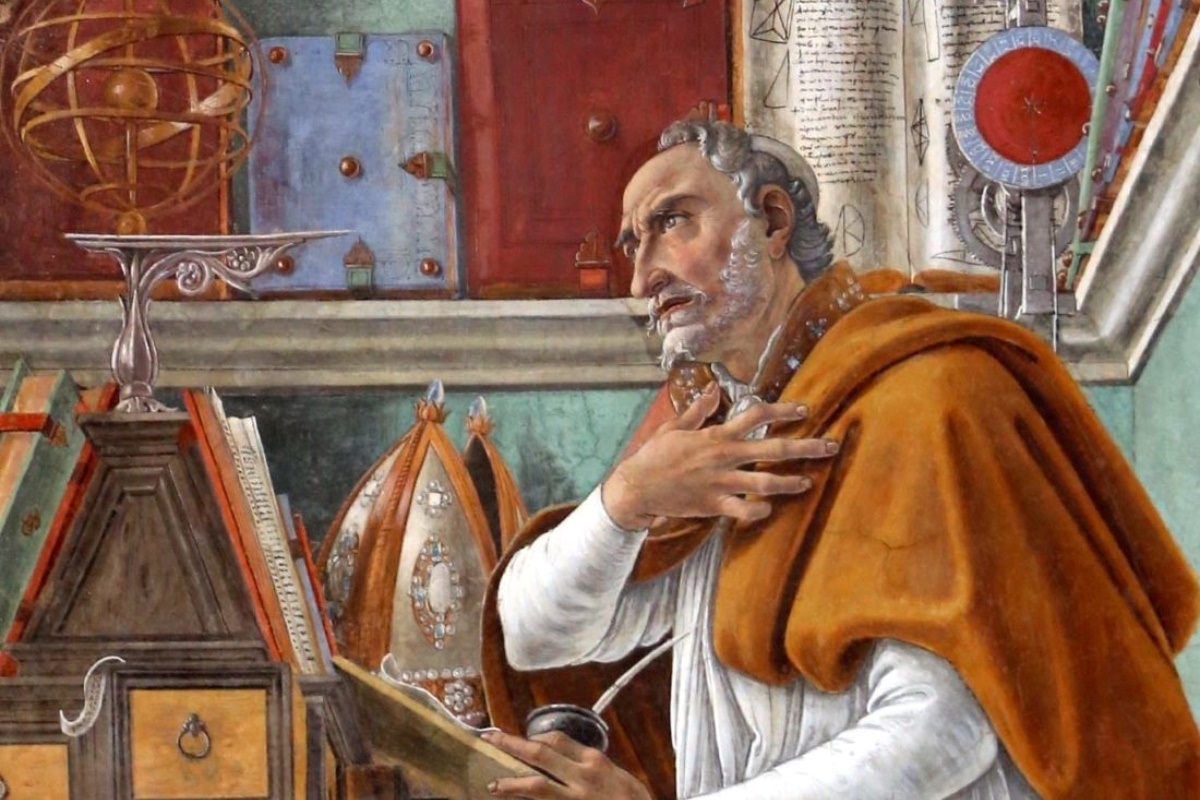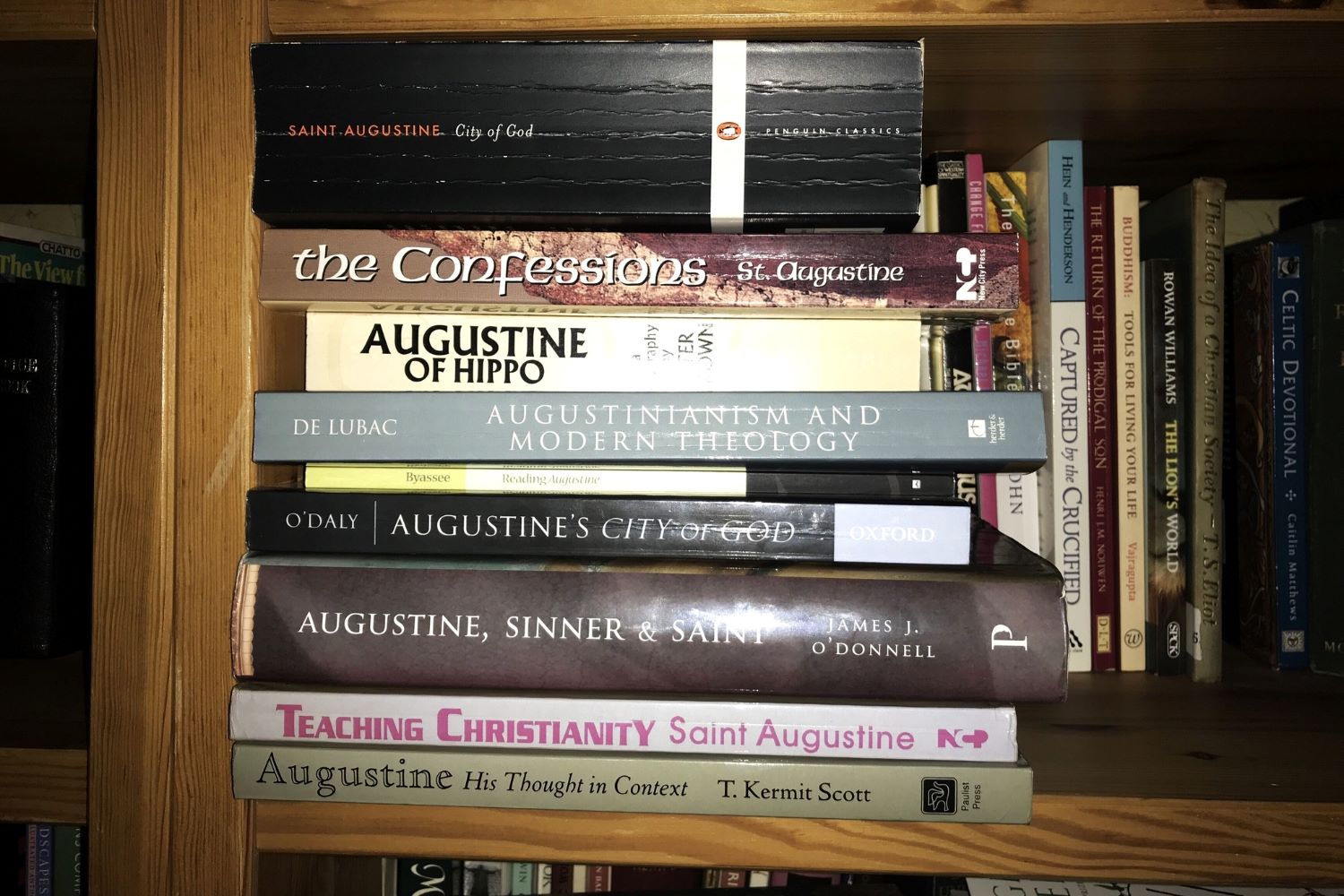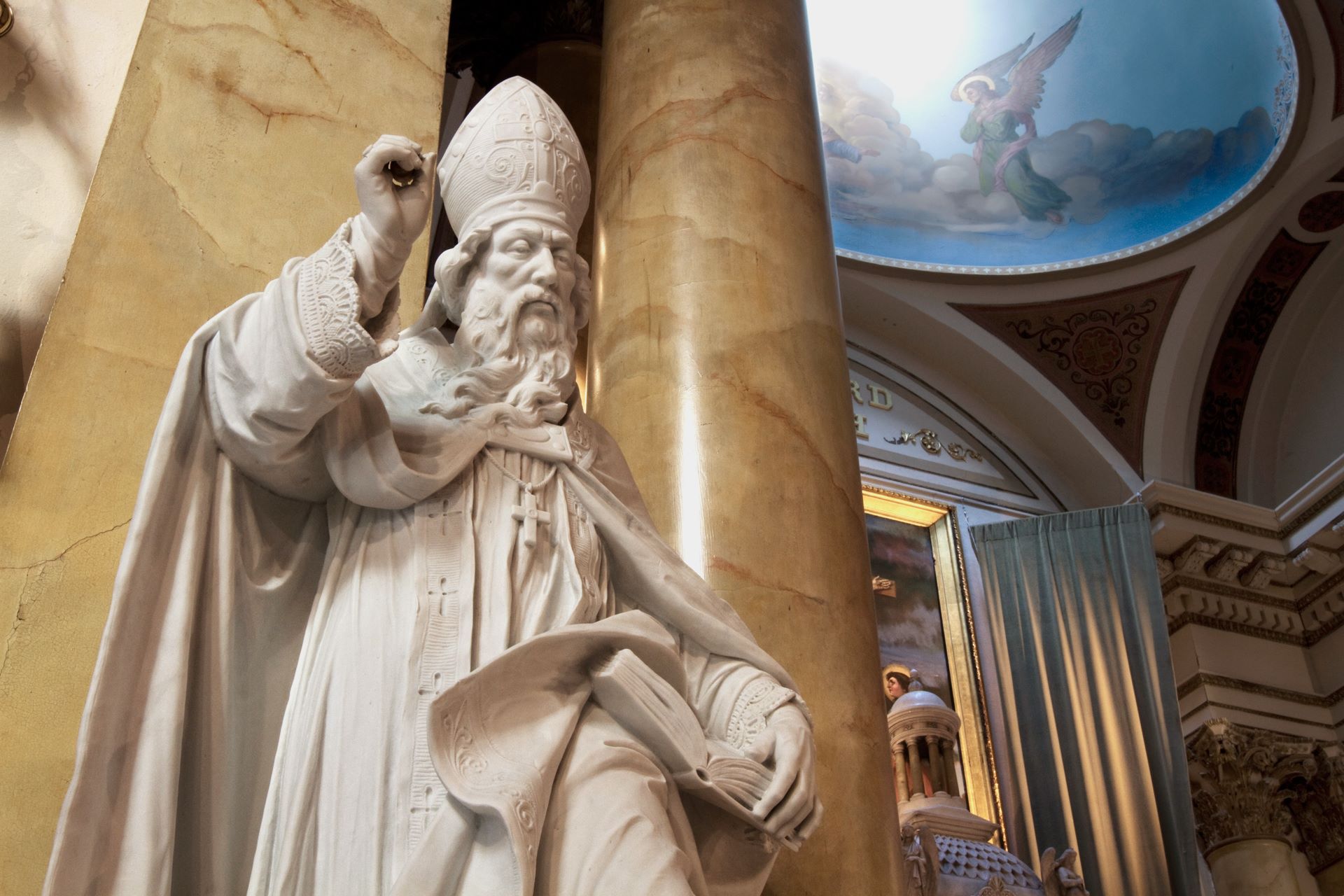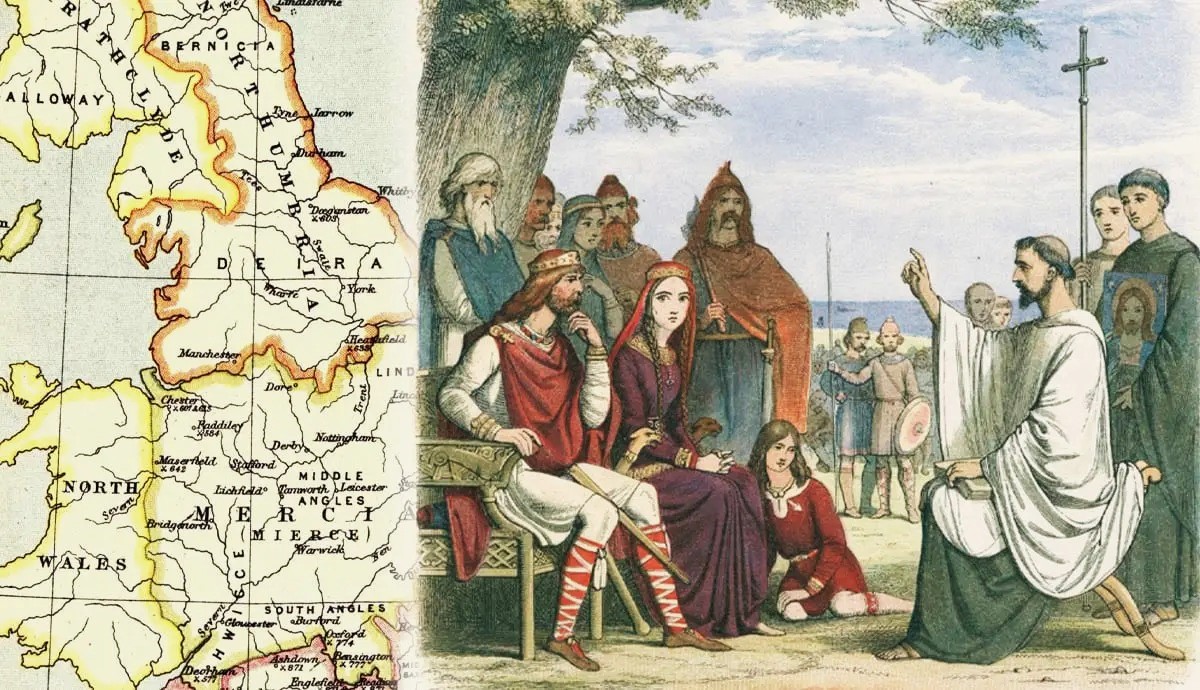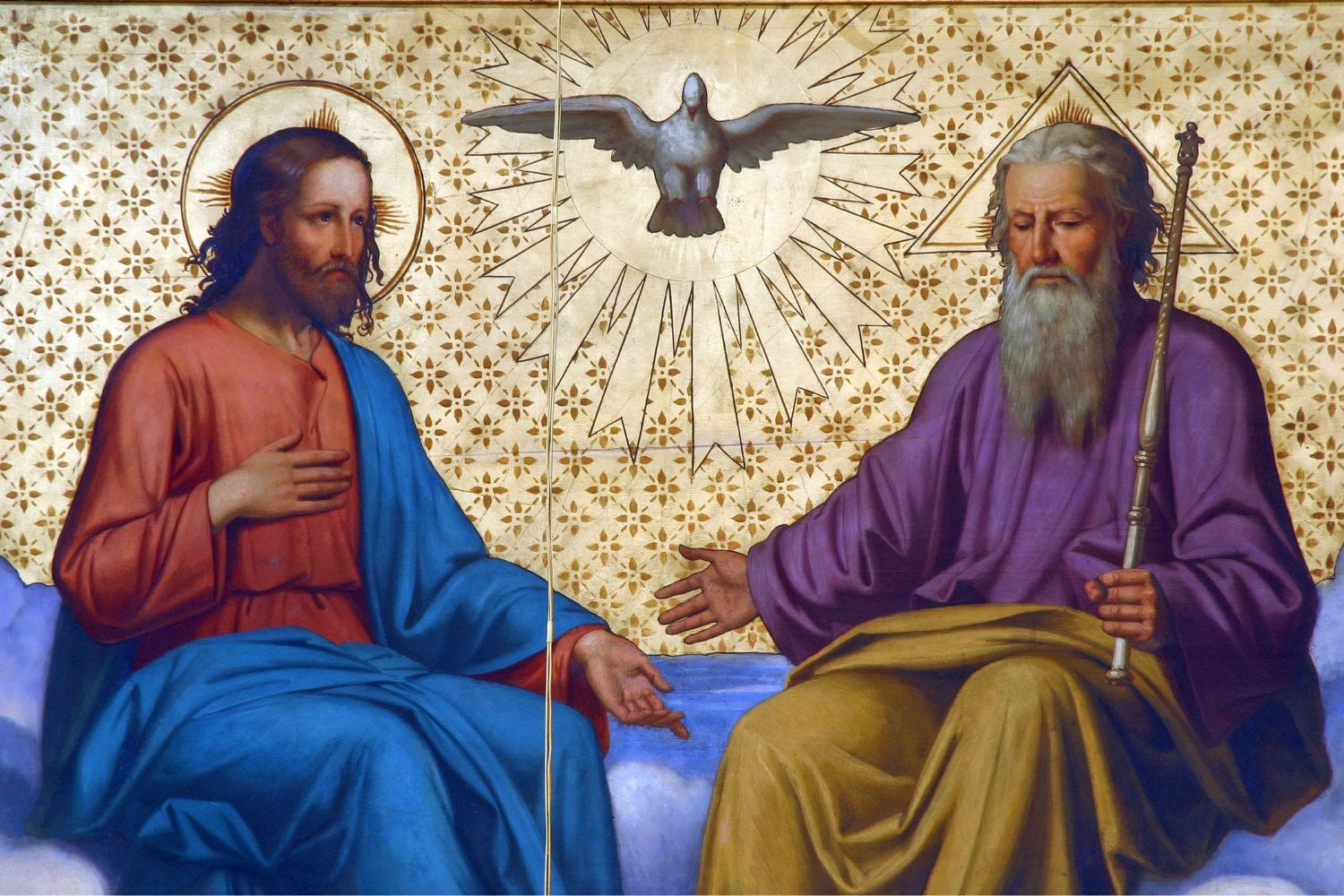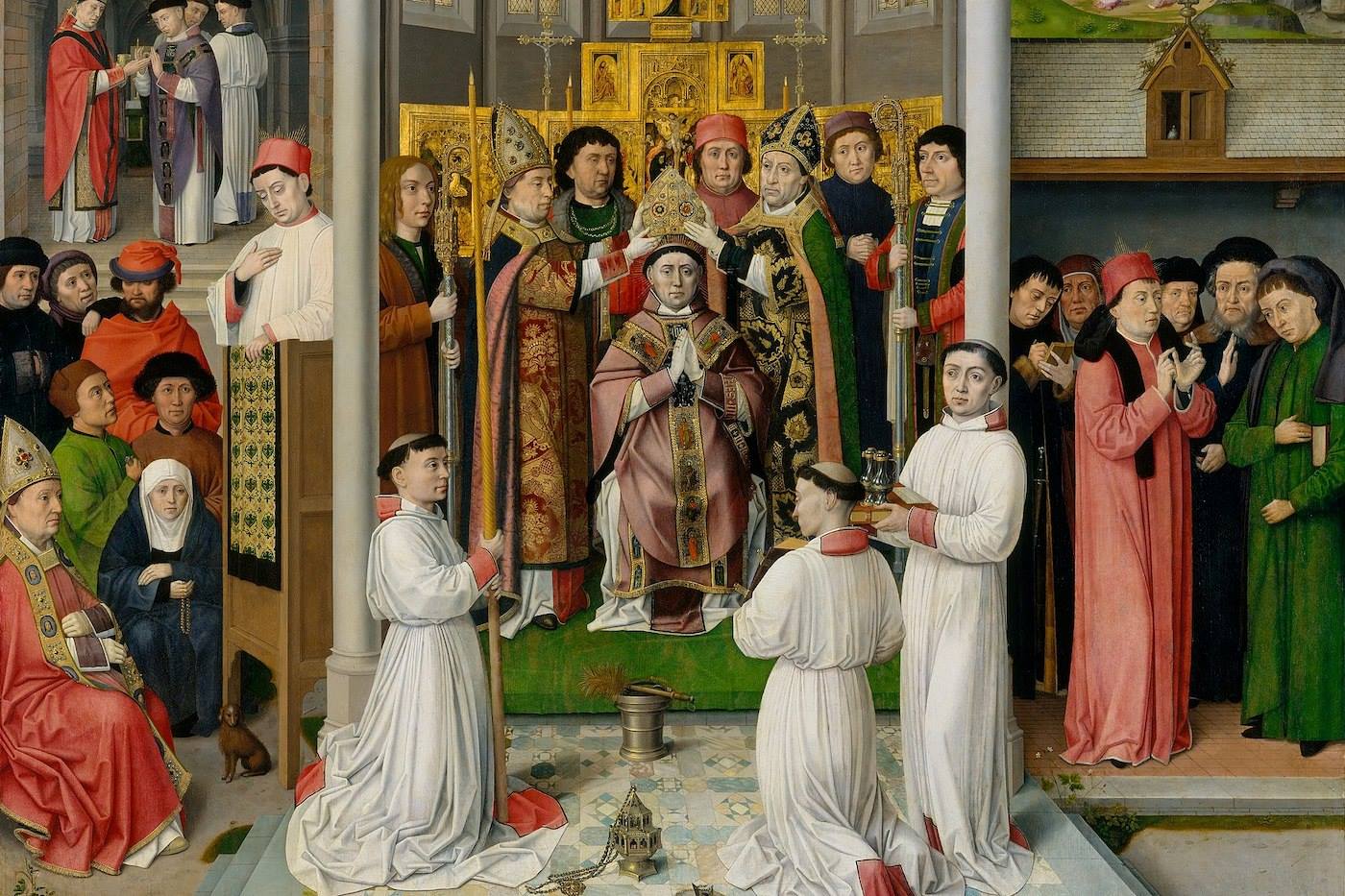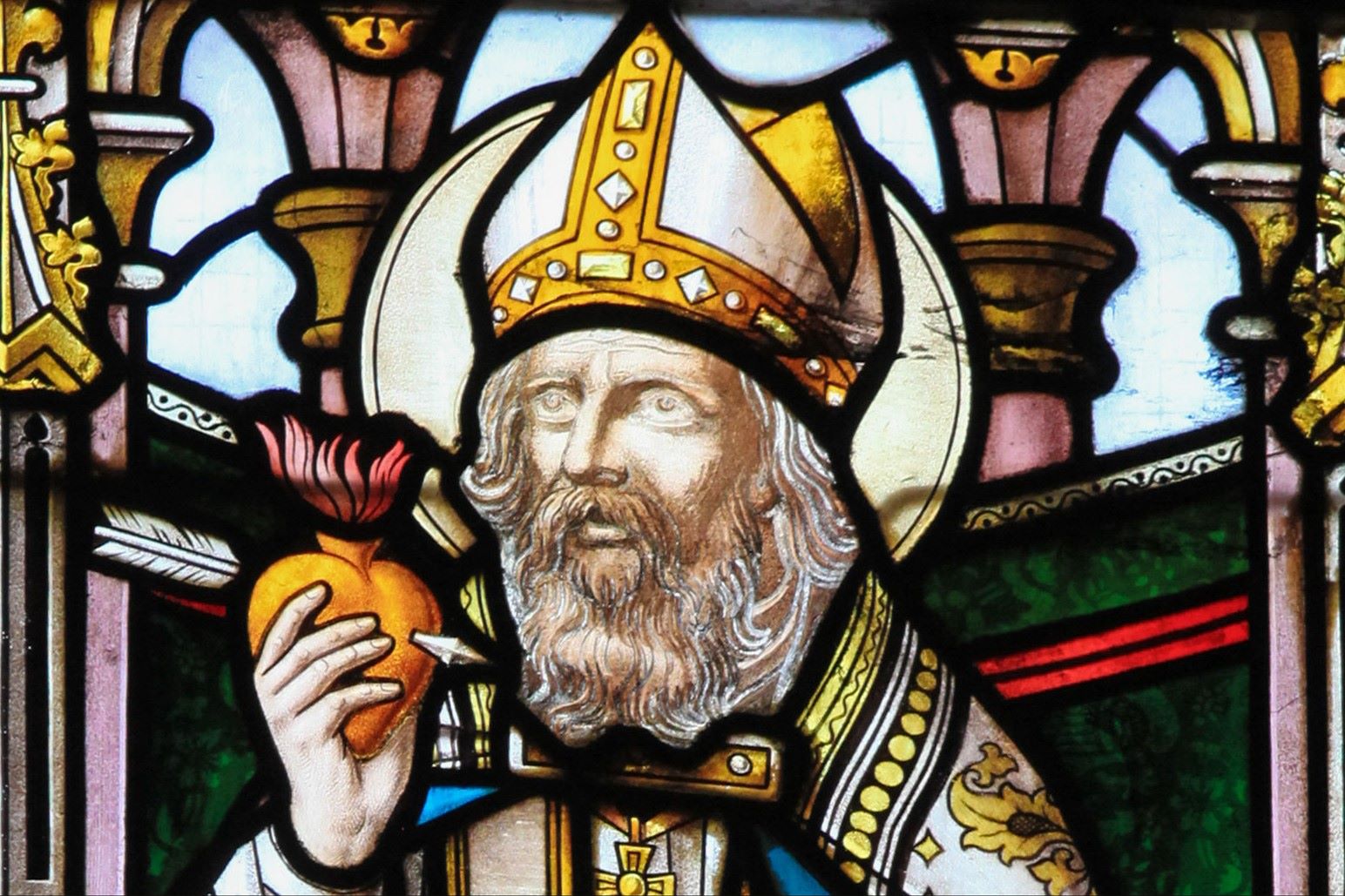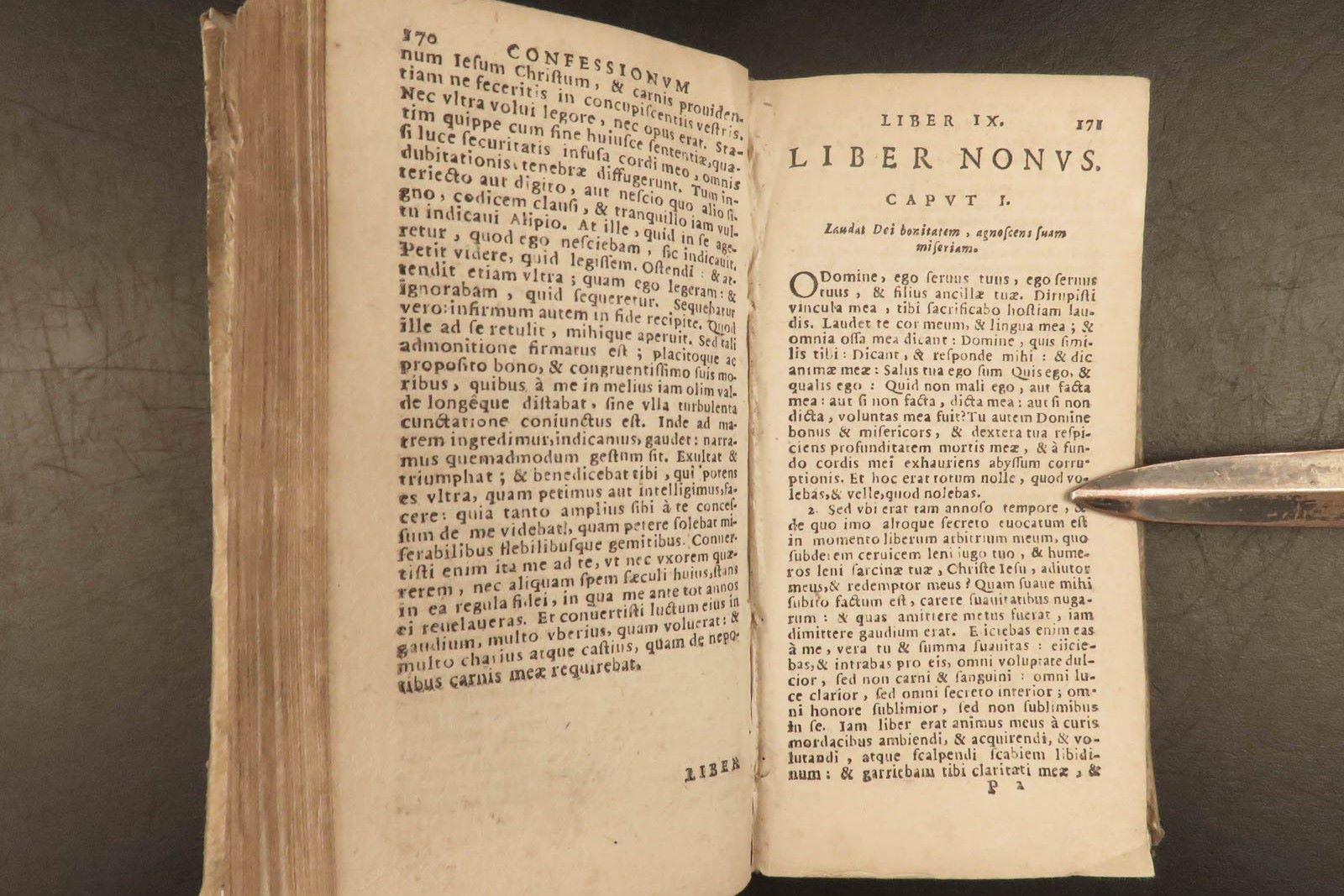Home>Theology and Spirituality>Why Did Augustine Join The Manicheans
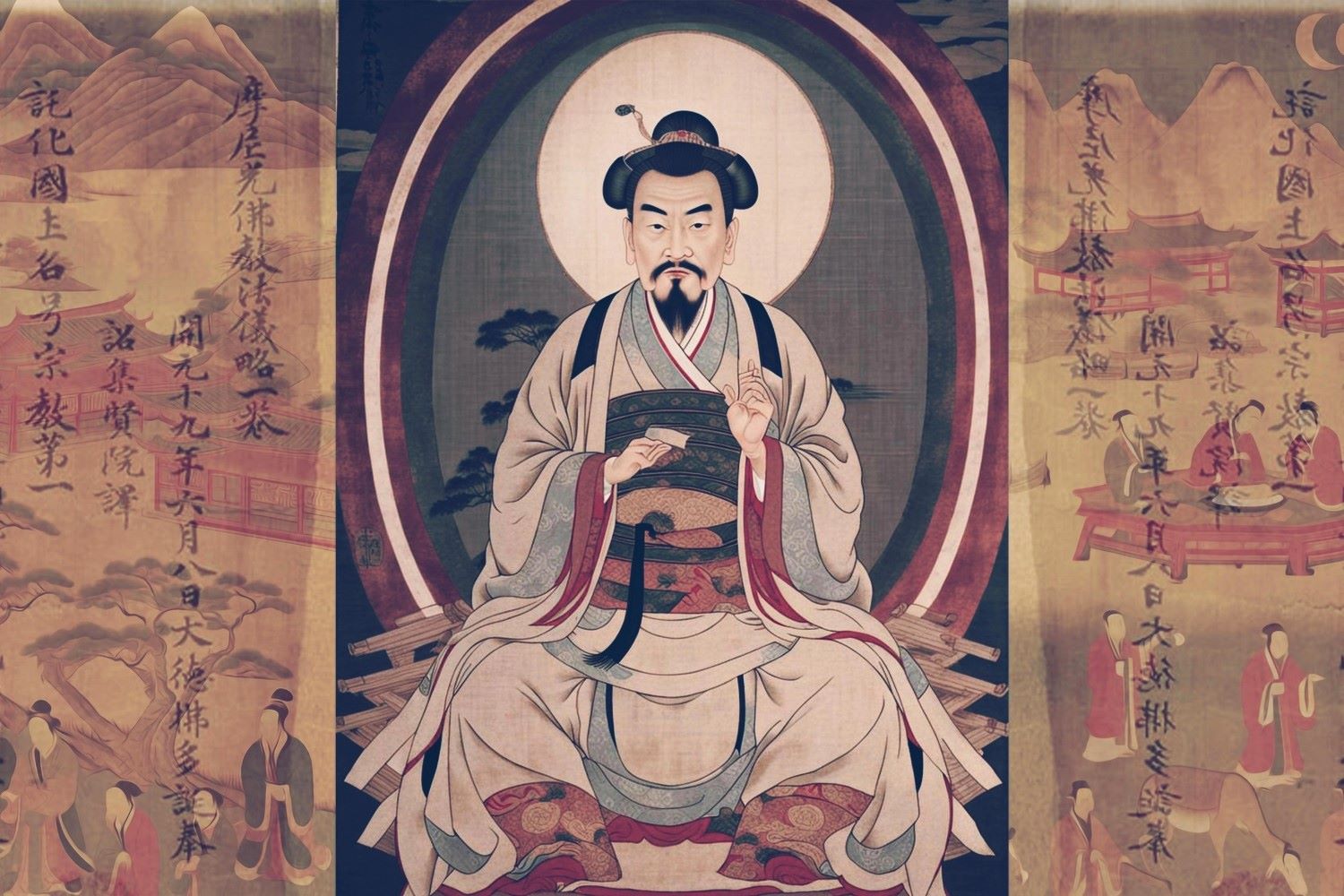

Theology and Spirituality
Why Did Augustine Join The Manicheans
Published: February 10, 2024
Ericka Andersen, an editor at Christian.net, expertly merges digital strategy with content creation, focusing on faith and societal issues. Her communication skills enhance the platform's engaging narratives, fostering meaningful dialogue on belief's impact on society.
Discover why Augustine joined the Manicheans and explore the theological and spiritual influences that led to his decision. Delve into the complexities of his journey.
(Many of the links in this article redirect to a specific reviewed product. Your purchase of these products through affiliate links helps to generate commission for Christian.net, at no extra cost. Learn more)
Table of Contents
Introduction
Augustine of Hippo, also known as Saint Augustine, was a prominent theologian and philosopher of the late Roman Empire. His influential works and profound impact on Christian theology have solidified his position as one of the most significant figures in the history of Christianity. However, before his conversion to Christianity, Augustine embarked on a spiritual journey that led him to explore various philosophical and religious ideologies, including Manicheanism.
The decision of Augustine, a man of great intellect and spiritual curiosity, to join the Manichean sect remains a subject of fascination and scholarly inquiry. Understanding the circumstances and motivations behind his association with the Manicheans provides valuable insights into the early influences that shaped his theological development.
In this article, we will delve into the early life of Augustine, his encounter with Manicheanism, the reasons for his decision to join the sect, and the profound impact of Manicheanism on his intellectual and spiritual journey. By exploring these aspects, we aim to unravel the complexities of Augustine's formative years and gain a deeper understanding of the factors that ultimately led him to embrace Christianity and become one of its most influential proponents.
The journey of Augustine's spiritual exploration, particularly his involvement with the Manicheans, offers a compelling narrative that sheds light on the complexities of human faith and the quest for spiritual truth. As we navigate through the pivotal moments of Augustine's early life, we will uncover the intricate interplay of intellectual curiosity, philosophical inquiry, and the yearning for spiritual fulfillment that characterized his transformative journey.
Read more: Why Did Augustine Steal The Pears
Early Life of Augustine
Augustine of Hippo, born Aurelius Augustinus, in 354 AD in Thagaste, a Roman province in North Africa, embarked on a remarkable journey that would shape the course of Christian theology and spirituality. His early life was marked by a blend of intellectual curiosity, spiritual yearning, and the pursuit of knowledge. Augustine's upbringing was deeply influenced by his mother, Monica, a devout Christian, whose steadfast faith and unwavering devotion would later play a pivotal role in his spiritual transformation.
From a young age, Augustine exhibited exceptional intellectual prowess and a voracious appetite for learning. His insatiable thirst for knowledge led him to pursue education in rhetoric and philosophy, eventually propelling him into the realm of academia and intellectual discourse. Despite his innate intellectual gifts, Augustine's early years were also characterized by a sense of restlessness and a quest for meaning that would drive him to explore various philosophical and religious ideologies.
As a young man, Augustine's pursuit of knowledge and truth led him to embrace Manicheanism, a dualistic religious sect that espoused a distinct cosmological worldview. His association with the Manicheans marked a significant phase in his spiritual journey, as it exposed him to a radical departure from traditional Christian teachings and introduced him to a novel interpretation of the nature of good and evil.
The formative years of Augustine's life, punctuated by intellectual exploration and spiritual inquiry, laid the foundation for his future endeavors as a theologian and philosopher. His early experiences, including his encounter with Manicheanism, served as catalysts for his profound intellectual and spiritual evolution, ultimately shaping the trajectory of his influential contributions to Christian thought.
In the next section, we will delve into Augustine's encounter with Manicheanism and explore the factors that led him to align himself with this enigmatic religious sect, unraveling the intricate interplay of intellectual curiosity, philosophical exploration, and the yearning for spiritual truth that defined his early life.
Encounter with Manicheanism
At the heart of Augustine's intellectual and spiritual journey lies his profound encounter with Manicheanism, a religious sect that would leave an indelible mark on his formative years. The allure of Manicheanism, with its distinctive cosmological doctrines and promise of esoteric knowledge, captivated the inquisitive mind of the young Augustine. The sect, founded by the Persian prophet Mani, presented a radical departure from traditional Christian teachings, offering a dualistic framework that sought to reconcile the existence of good and evil in the world.
In the vibrant intellectual landscape of the late Roman Empire, Manicheanism held a magnetic appeal for seekers of truth and knowledge. Augustine, driven by his insatiable thirst for understanding the nature of existence and the human condition, found himself drawn to the enigmatic teachings of the Manicheans. Their cosmological dualism, which posited the coexistence of opposing forces of light and darkness, presented a compelling alternative to the prevailing Christian doctrines of the time.
The allure of Manicheanism's esoteric wisdom and its purported ability to unravel the mysteries of the universe resonated deeply with Augustine's philosophical inclinations. The sect's emphasis on the inherent struggle between the forces of good and evil, as manifested in the cosmic and human realms, offered a tantalizing framework through which to interpret the complexities of existence. Augustine, in his quest for intellectual enlightenment and spiritual fulfillment, was lured into the captivating realm of Manichean thought, eagerly immersing himself in its teachings and doctrines.
The encounter with Manicheanism marked a pivotal juncture in Augustine's spiritual odyssey, exposing him to a worldview that challenged the traditional Christian paradigm and ignited a fervent intellectual engagement with profound existential questions. The allure of Manicheanism's alternative cosmology, coupled with its promise of esoteric knowledge, exerted a profound influence on Augustine's evolving worldview, setting the stage for a transformative period of philosophical exploration and spiritual inquiry.
As we delve deeper into Augustine's immersion in the world of Manicheanism, we unravel the intricate interplay of intellectual curiosity, philosophical fascination, and the yearning for spiritual enlightenment that defined this pivotal chapter in his early life.
Reasons for Joining the Manicheans
Augustine's decision to join the Manicheans stemmed from a convergence of intellectual, spiritual, and existential factors that shaped his formative years. At the core of his attraction to Manicheanism lay a profound yearning for understanding the nature of existence and the human condition. The allure of the sect's cosmological dualism, which posited the coexistence of opposing forces of light and darkness, resonated deeply with Augustine's philosophical inclinations. The Manicheans' alternative interpretation of the age-old question of good and evil offered a tantalizing framework through which to interpret the complexities of the world.
Furthermore, Augustine's intellectual curiosity and thirst for knowledge played a pivotal role in his embrace of Manicheanism. The sect's promise of esoteric wisdom and its purported ability to unravel the mysteries of the universe captivated the inquisitive mind of the young Augustine. The allure of delving into the depths of metaphysical truths and uncovering hidden knowledge fueled his fascination with the Manichean teachings, drawing him into a realm of philosophical inquiry and spiritual exploration.
Additionally, Augustine's dissatisfaction with the perceived moral ambiguity within the traditional Christian framework also contributed to his attraction to Manicheanism. The Manicheans' unequivocal delineation of the cosmic struggle between the forces of good and evil offered a stark contrast to the nuanced moral ambiguities present in mainstream Christianity. Augustine, grappling with existential questions and the complexities of human morality, found solace in the apparent clarity offered by the Manichean worldview, which presented a stark dichotomy between the realms of light and darkness.
Moreover, the socio-political context of Augustine's time, characterized by intellectual ferment and the coexistence of diverse religious and philosophical movements, provided fertile ground for the propagation of Manichean ideas. The sect's growing influence and the allure of its alternative cosmology within the intellectual circles of the late Roman Empire further facilitated Augustine's immersion in the Manichean milieu.
In essence, Augustine's decision to join the Manicheans was a multifaceted convergence of intellectual curiosity, spiritual yearning, existential questioning, and the socio-cultural milieu of his time. These complex interplays of factors underscore the depth of his engagement with Manicheanism and its profound impact on his early intellectual and spiritual development.
Influence of Manicheanism on Augustine's Thought
The profound influence of Manicheanism on Augustine's thought reverberates through the intricate tapestry of his intellectual and spiritual evolution. Augustine's immersion in the enigmatic teachings of the Manicheans left an indelible imprint on his philosophical framework, shaping his early theological inquiries and profoundly influencing the trajectory of his subsequent theological contributions.
Central to the impact of Manicheanism on Augustine's thought was the sect's cosmological dualism, which posited the existence of opposing forces of light and darkness in the cosmic and human realms. This dualistic worldview, with its stark delineation of good and evil, permeated Augustine's early theological reflections, igniting a fervent engagement with the complexities of moral ontology and the nature of sin. The Manichean emphasis on the inherent struggle between the forces of light and darkness resonated deeply with Augustine's existential inquiries, fueling his contemplation of the human condition and the pervasive presence of moral ambiguity in the world.
Moreover, Augustine's encounter with Manicheanism engendered a profound intellectual engagement with the metaphysical intricacies of the universe. The sect's promise of esoteric wisdom and its purported ability to unravel the mysteries of existence captivated Augustine's inquisitive mind, propelling him into a realm of philosophical inquiry and spiritual exploration. The allure of delving into the depths of metaphysical truths and uncovering hidden knowledge permeated Augustine's early theological musings, laying the groundwork for his future philosophical inquiries into the nature of reality and the divine.
Furthermore, the Manichean influence on Augustine's thought extended to his evolving understanding of the complexities of human morality and the perennial struggle between the impulses of the flesh and the aspirations of the spirit. The sect's stark dichotomy between the realms of light and darkness prompted Augustine to grapple with profound existential questions, ultimately catalyzing his introspective exploration of the human psyche and the intricacies of moral agency.
In essence, the influence of Manicheanism on Augustine's thought manifested as a profound catalyst for his early theological and philosophical inquiries, shaping the contours of his intellectual landscape and laying the groundwork for his future theological contributions. The interplay of Manichean cosmological dualism, esoteric allure, and moral contemplation permeated Augustine's early thought, setting the stage for his transformative journey towards a nuanced and profound theological synthesis.
Read more: Why Did Augustine Go To Rome
Conclusion
In conclusion, Augustine's affiliation with the Manicheans represents a pivotal chapter in his intellectual and spiritual odyssey. His immersion in the enigmatic teachings of the Manichean sect, driven by a convergence of intellectual curiosity, spiritual yearning, and existential questioning, profoundly influenced the trajectory of his early theological and philosophical inquiries. The allure of Manicheanism's cosmological dualism, promise of esoteric wisdom, and stark delineation of good and evil resonated deeply with Augustine's philosophical inclinations, igniting a fervent engagement with profound existential questions and moral contemplation.
The influence of Manicheanism on Augustine's thought reverberated through the intricate tapestry of his intellectual and spiritual evolution, shaping the contours of his early theological landscape and laying the groundwork for his future contributions to Christian thought. The sect's alternative cosmology, emphasis on the struggle between light and darkness, and promise of hidden knowledge fueled Augustine's contemplation of the complexities of existence, the nature of reality, and the human condition.
Ultimately, Augustine's journey from Manicheanism to Christianity reflects the profound transformation of a searching intellect and a yearning soul. His encounter with Manicheanism, marked by intellectual curiosity, spiritual exploration, and existential inquiry, served as a crucible for his profound intellectual and spiritual evolution. The complexities of Augustine's early engagement with Manicheanism underscore the intricate interplay of human faith, intellectual curiosity, and the quest for spiritual truth, illuminating the profound depths of his transformative journey.
As Augustine's life unfolded, his encounter with Manicheanism became a foundational chapter in the narrative of his spiritual quest, ultimately leading him to embrace Christianity and become one of its most influential theologians. The enduring legacy of Augustine's intellectual and spiritual odyssey, shaped by his engagement with the Manicheans, continues to resonate through the annals of Christian theology, serving as a testament to the profound complexities of human faith and the enduring quest for spiritual truth.
